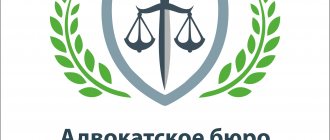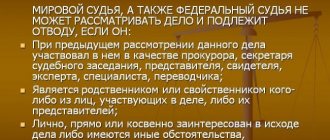Commentary on Article 28 of the Code of Criminal Procedure of the Russian Federation
1. Termination of criminal prosecution in connection with active repentance under Part 1 of this article is possible only in cases of crimes of minor and medium gravity. In addition, according to Part 1 of Art. 75 of the Criminal Code, the crime must be committed for the first time <1>. (For the interpretation of the concept “for the first time” see paragraph 2 of Article 25.)
——————————— <1> See: Naumov A.V. Practice of application of the Criminal Code of the Russian Federation: Commentary on judicial practice and doctrinal interpretation. (item by article) / Ed. G.M. Reznik. M., 2005.
2. The grounds for terminating criminal prosecution, allowing one to draw a conclusion about active repentance, are the simultaneous presence of the following circumstances: a) the person voluntarily turned himself in (see Art. 142 on confession); b) contributed to the detection of the crime; c) compensated for the damage caused or otherwise made amends for the damage caused as a result of the crime (Part 1 of Article 75 of the Criminal Code). If we interpret the norm of Part 1 of Art. 75 of the Criminal Code literally, then we can come to the conclusion that only the totality of these actions means active repentance. Indeed, there will be no active repentance, for example, when a person confesses, but categorically refuses to name his accomplices, testify against them in a confrontation (fearing revenge, not wanting to look like a traitor in their eyes, etc.) or compensate for losses, caused by the crime. But if any of those named in Art. 75 of the Criminal Code of the Russian Federation did not commit actions for valid and objective reasons, but performed others, then the termination of criminal prosecution against him in connection with active repentance, in our opinion, is sometimes still possible. For example, if the accused provided serious and active assistance in solving the crime, fully compensated for the harm caused, was preparing, but failed to confess in due time, because was accidentally discovered and detained by police officers, it would be unfair to refuse to terminate his criminal prosecution on this basis. The same can be said about cases where the accused does not have the means to compensate for the material damage caused, or the crime was quickly discovered by the preliminary investigation authorities even before his help was needed. In any case, assessing the weight of one or another reason specified in Art. 75 of the Criminal Code, and the general conclusion about the presence of active repentance must be made according to the internal conviction of the judge, investigator or interrogator. It should be remembered that the legal fact entailing the termination of criminal prosecution under Art. 28 of the Code of Criminal Procedure is precisely active repentance, and the circumstances specified in Art. 75 of the Criminal Code, there are only evidentiary facts establishing the existence of such repentance.
3. Contributing to the detection of a crime consists in the fact that a person, through his actions, actively assists the body of inquiry, the interrogating officer, the investigator in identifying, searching, and detaining persons involved in the commission of a crime; identifying objects, instruments and traces of a crime, possible witnesses and victims; carrying out investigative and operational search actions. The active role of a person contributing to the detection of a crime can be manifested both in the fact that he himself, on his own initiative, performs the above actions, and in the fact that he voluntarily provides real assistance at the suggestion of the investigator and employees of the inquiry agency.
4. On the concept of making amends for harm caused as a result of a crime, see com. to Art. 25.
5. Part 2 of this article establishes that the termination of criminal prosecution of a person in a criminal case for a crime of a different category if the person actively repents of the crime committed is carried out by the court, as well as by the investigator with the consent of the head of the investigation department and by the investigator with the consent of the prosecutor only in cases specifically provided for by the relevant articles of the Special Part of the Criminal Code of the Russian Federation. Crimes of a different category than those named in Part 1 of this article are grave and especially grave crimes. The articles of the Criminal Code, which establish liability for some of these crimes, as well as for certain crimes of medium gravity, provide for the possibility of exemption from criminal liability if certain conditions are met, which do not always coincide with those named in Part 1 of Art. 28 Code of Criminal Procedure and Part 1 of Art. 75 of the Criminal Code and do not necessarily mean the presence of actual (moral) repentance. Thus, the release of a hostage at the request of a law enforcement agency may be explained by the fear of dying as a result of the assault, and not by voluntary repentance. In such cases, it would be more correct, in our opinion, to exempt from criminal liability not under Art. 28 of the Code of Criminal Procedure, and on the basis of notes to the relevant articles of the Criminal Code.
6. Termination of criminal prosecution due to active repentance should be distinguished from a pre-trial cooperation agreement. See about this com. to Art. 317.1.
Everything about criminal cases
Filing a petition for mitigation of punishmentUrl Additional information:
- part 3 396 of the Code of Criminal Procedure
the jurisdiction of this issue relates to the court at the place of serving
- when a new law is issued, a petition for review of the sentence is submitted by the convicted person to the court at the place where the sentence is served ( Part 3 396 of the Code of Criminal Procedure
).
Court hearing
Url Additional information:
- Part 2 399 Code of Criminal Procedure
procedure for a court hearing on issues of execution of a sentence
— the procedure for holding a court hearing is regulated in Part 2 399 of the Code of Criminal Procedure
.
— the procedure itself is very concise and takes 20-30 minutes. After all, the court has to decide only two questions:
A)
Does the new law really reduce the punishment? This is not always obvious and clear; a new law may be formulated this way, but it may not be immediately clear.
b)
How much should the punishment be reduced?
Since only these two issues are being resolved, the court, in fact, has nothing to talk about with the convicted person.
Url Additional information:
- paragraph 17
Plenum No. 21 factual circumstances are not considered
After all, the court does NOT have the right to decide questions of establishing facts and the correct application of the law when passing a sentence (this is prohibited by paragraph 17
Plenum No. 21).
General principles of punishment
- the court, when deciding issues of execution of a sentence, does not have the right to go into questions of evidence, does not have the right to look for and correct errors, incorrect application of the law (for this there is a cassation
order).
- however, something can be influenced: if the court mitigates the punishment in connection with a new criminal law, then it will have to decide the issue of the amount of mitigation.
— the law does not provide any tables or formulas for calculations.
Url Additional information:
- paragraph 16
Plenum No. 21, when mitigating punishment, the provisions of Article
60 of the Criminal Code
- but there is an important instruction in paragraph 16
Plenum No. 21: the amount of mitigation is determined by the court based on
the general principles
of sentencing.
Url Additional information:
- Part 3 60 Criminal Code
factors taken into account when sentencing
- paragraph 27
Plenum No. 58, taking into account for punishment the factors specified in
Part 3 of 60 of the Criminal Code
- what are the “general principles” of sentencing? These are the factors that are specified in Part 3 of 60 Criminal Code
and
paragraph 27
of Plenum No. 58.
What is the main “salt” here? The fact is that, in fact, the court must re-examine all the punishment factors used when making the initial sentence!
ADVICE:
— before the meeting, carefully study Part 3 60 of the Criminal Code
and
paragraph 27
of Plenum No. 58: they specify in detail exactly what factors the court should take into account when assigning punishment. Be prepared to refer to those factors that the trial court did not sufficiently evaluate.
- at the court hearing, refer to the point 16
Resolution of the Plenum of the Supreme Court dated December 20, 2011 N 21 “On the practice of courts’ application of legislation on the execution of sentences”, say out loud “
I ask the court to assess the application by the court of first instance of the general principles of sentencing, namely ..... (
give specific factors in your opinion case).
Searching for arguments to mitigate punishment
- the factual circumstances known to you about the crime and the identity of the suspect must be passed through a “filter”, looking for all the circumstances. which could be interpreted as mitigating:
A)
study
the List of mandatory
mitigating circumstances and compare it with the specifics of your case.
b)
study
the Selection of optional
mitigating circumstances, remember that this list is theoretically endless (
clause 28
of Plenum No. 58).
V)
You can read about how to apply these circumstances here:
Nuances of using
mitigating circumstances in a criminal case.
Proceedings within reason
2K 1 3 min.
The State Duma adopted in the first reading amendments to the Criminal Procedure Code (CPC), defining the terms of reasonable criminal proceedings. The current provisions of the law make it possible not to include in them the periods, sometimes measured in years, that pass from the filing of a statement of crime to the initiation of a criminal case. The bill itself was developed based on the decision of the Constitutional Court (CC), which considered the complaint of a man from Komi, who had been waiting for justice for almost nine years. Experts believe that the amendments will help victims defend their rights.
Photo: Evgeny Pavlenko, Kommersant
Photo: Evgeny Pavlenko, Kommersant
The bill on amendments to Art. considered by deputies on Tuesday. 6.1 of the Code of Criminal Procedure “Reasonable Time for Criminal Proceedings” was prepared on the basis of a decision of the Constitutional Court issued last summer, in which legislators were asked to adjust the norms contained therein. The reason was an appeal to the Constitutional Court by a resident of the Komi Republic. In the summer of 2009, he wrote a statement about the crime, but a criminal case was opened only six years later. It all ended with a guilty verdict. The man considered that his right to criminal proceedings within a reasonable time had been violated, filing appropriate claims in the courts demanding compensation. True, in doing so, he encountered a refusal - the courts considered that the period of legal proceedings itself is calculated not from the moment the application was filed, but from the day the investigation was launched and his recognition as a victim. The difference was very significant - almost nine years passed from the time the appeal to law enforcement agencies took place until the verdict entered into legal force, and the legal proceedings lasted, as the authorities considered, a little more than two years, of which nine months were spent directly on the preliminary investigation. The Constitutional Court came to the conclusion that the norms enshrined in the Code of Criminal Procedure for calculating the time limits for reasonable legal proceedings primarily protect the rights of suspects and accused, while protecting the rights of victims of criminal manifestations when legal proceedings are delayed is extremely difficult. The court specifically indicated that the victim becomes such precisely when he was harmed, and not at the moment when it was procedurally formalized by the investigator or interrogating officer. Therefore, the Constitutional Court recognized the norm of the Code of Criminal Procedure as inconsistent with the basic law of the country, which allows the time interval between the filing of an application and the initiation of a case not to be taken into account in the period of reasonable legal proceedings if everything ends in a guilty verdict.
Adviser to the Federal Chamber of Lawyers of Russia Evgeniy Rubinshtein explained to Kommersant that over the past year the Constitutional Court has checked the constitutionality of Part 3 of Art. 6.1 Code of Criminal Procedure of the Russian Federation. “At first, it was recognized as unconstitutional that this norm did not take into account, when determining a reasonable period, the period from the day the victim filed a statement of crime until the moment of initiation of a criminal case in cases where the proceedings in this case ended with a guilty verdict, and then that this norm did not took into account the period from the filing of the application to the initiation of the case in cases where the proceedings were terminated due to death,” said Mr. Rubinstein. He noted that each time the court ordered changes to be made to the Code of Criminal Procedure of the Russian Federation. “As a result, the calculation of a reasonable period of criminal proceedings should begin with a specific legal fact - the filing of an application for a crime,” said Evgeniy Rubinshtein, noting that this wording should replace the vague concept “from the moment of the beginning of criminal prosecution.” “Meanwhile, one can hardly hope that the proposed changes will affect the reduction of the time frame for so-called pre-investigation checks,” the expert believes. He is convinced that the reasons for the unjustifiably prolonged deadlines lie in the “archaic structure” of the very initiation of a criminal case and the negative attitude towards its termination.
Meanwhile, lawyer Marina Yarosh told Kommersant that changes in legislation can have a positive impact on both the investigation of criminal cases and the conduct of inspections. “According to the law, we are given up to 30 days to check and make a procedural decision, but in reality it lasts for months,” she explained, especially noting that the results of these checks can either be used to initiate a case or shelved. “If the amendments are adopted, it will be difficult to do the latter, since it will be possible to appeal in court against the actions of the investigation as a violation of the deadlines for reasonable legal proceedings,” Ms. Yarosh believes. She noted that previously the courts had constantly rejected such complaints, but hopes that soon “they will pay attention to them.” In turn, the public representative of the business ombudsman, lawyer Dmitry Grigoriadi, told Kommersant that the decisions of the Constitutional Court and the amendments of the State Duma deputies are “extremely positive.” “In my practice, there were many cases with endless pre-investigation checks, which made it possible to create a nightmare for business,” said Boris Titov’s representative, Fr. “Now we will have the basis for further action,” Mr. Grigoriadi is confident.
Sergey Sergeev





